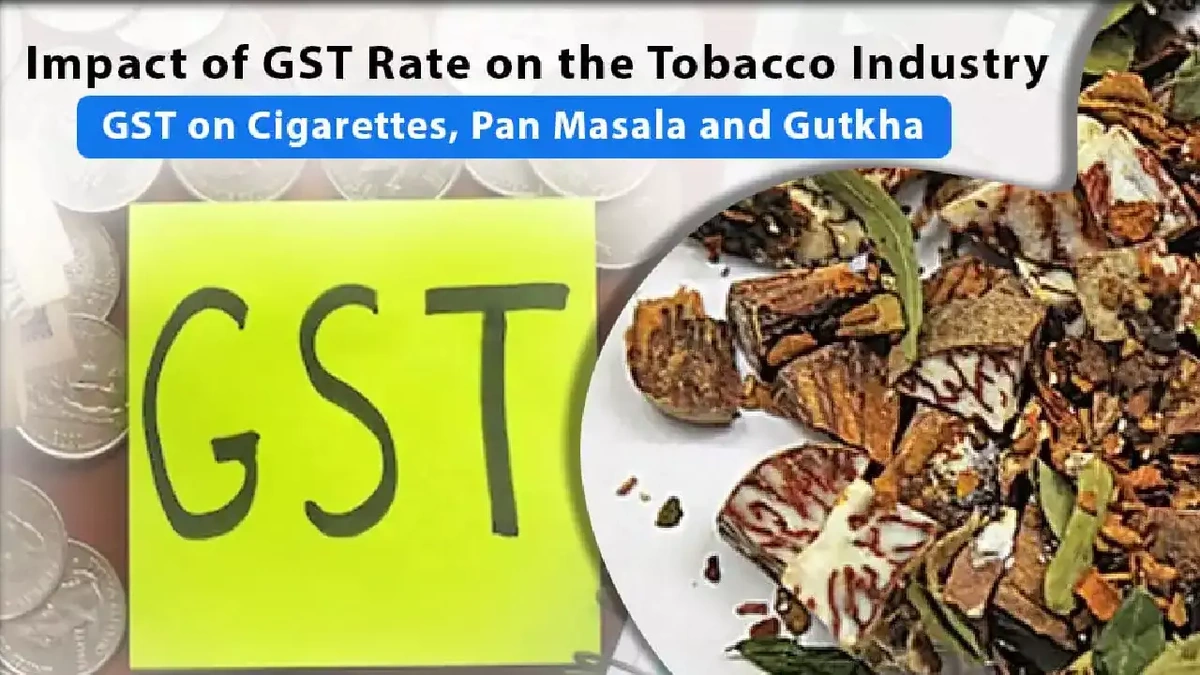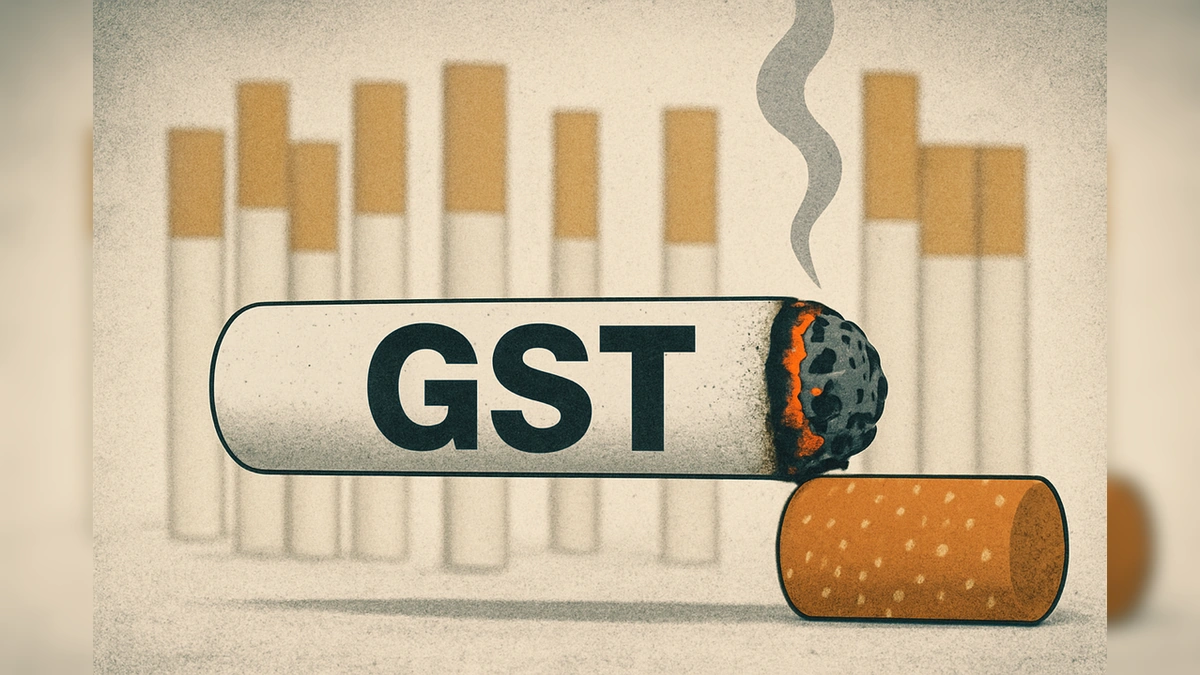Decoding GST on Cigarettes | More Than Just a Tax
Ever stubbed out a cigarette and wondered where all that money goes? Let’s be honest, a significant chunk vanishes into the government’s coffers, thanks to GST on cigarettes . But here’s the thing: it’s not just about raising revenue. It’s a complex web of economics, health policy, and even social responsibility. This isn’t just a price hike; it’s a carefully calibrated (or arguably, not so carefully calibrated) strategy.
Thank you for reading this post, don't forget to subscribe!So, why does the government tax cigarettes so heavily? And what does it actually mean for you, the consumer, and even the tobacco industry itself? I initially thought this was straightforward, but the more I dug, the more fascinating it became. Let’s unravel this, shall we?
The “Sin Tax” Explained | Why Cigarettes Get Special Treatment

Cigarettes are often slapped with what’s known as a “sin tax.” Now, that sounds rather judgmental, doesn’t it? But it’s simply a way to disincentivize consumption of products deemed harmful. The logic? Make cigarettes expensive enough, and people might think twice before lighting up. GST implementation plays a huge role here. Think of it as a double whammy: not only do you have the base price, but then a hefty GST gets added on top. It’s a deliberate attempt to nudge people towards healthier choices, or at least make them contribute more to the public purse if they don’t.
But it’s not just about morality. The government also considers the healthcare costs associated with smoking-related illnesses. Treating lung cancer, heart disease, and other ailments puts a strain on the public healthcare system. The GST revenue collected from cigarettes helps offset these costs, in theory, though the extent to which it actually does is a debate for another day.
How GST Impacts Cigarette Prices in India | A Deep Dive

Alright, let’s get down to brass tacks. How does GST rate on cigarettes actually affect your wallet? Before GST, there was a complex system of excise duty, VAT, and other taxes. GST aimed to simplify this, but the impact on cigarette prices has been… well, significant.
Cigarette taxation falls under the highest GST slab (28%), plus an additional compensation cess. This cess is specifically designed to compensate states for any revenue losses they might incur due to the implementation of GST. And, let’s be honest, cigarettes are a reliable source of revenue for state governments. The combined effect of GST and the cess means that cigarettes are taxed at a very high rate in India. As a consequence this will also reflect on India GDP Growth Rate .
So, what does this mean in real terms? Expect to pay a premium for your pack. The exact price increase varies depending on the brand and the state, but you can be sure that a substantial portion of the price you pay goes straight to the government.
The Ripple Effect | Industry, Smuggling, and You

The impact of high GST on tobacco isn’t limited to smokers and the government. It has a ripple effect throughout the entire tobacco industry. Cigarette manufacturers, distributors, and retailers all feel the pinch. Increased prices can lead to decreased sales, which can impact their bottom line.
But here’s where it gets interesting. High taxes can also create a black market for smuggled cigarettes. When the legal product becomes too expensive, people may turn to illegal sources to satisfy their cravings. This not only deprives the government of tax revenue but also raises concerns about product quality and safety.
What fascinates me is, that the policy is a complex balancing act. The government wants to discourage smoking, raise revenue, and protect public health – all while minimizing the unintended consequences of high taxes, such as smuggling and the black market. It’s a tightrope walk, to say the least.
Alternatives and the Future of Tobacco Consumption

With the rise of awareness regarding the health risks associated with traditional cigarettes, many smokers are now considering alternative options such as e-cigarettes, vaping products, and nicotine pouches. These alternatives are often marketed as less harmful substitutes, but their long-term health effects are still a subject of ongoing research. From a taxation perspective, these products often fall into a gray area, with governments around the world grappling with how to regulate and tax them appropriately.
For instance, e-cigarettes and vaping products might be subject to different tax rates than traditional cigarettes, depending on the jurisdiction. Some countries have chosen to impose high taxes on these products to discourage their use, while others have opted for lower rates to encourage smokers to switch from traditional cigarettes to potentially less harmful alternatives.
The future of tobacco consumption is likely to be shaped by a combination of factors, including government regulations, taxation policies, and changing consumer preferences. As awareness of the health risks associated with smoking continues to grow, and as new alternative products become available, the landscape of the tobacco industry is likely to evolve significantly in the years to come. It may also affect the market for the latest Hotstar Jio packages.
FAQ | Your Burning Questions Answered
What exactly is GST?
GST stands for Goods and Services Tax. It’s an indirect tax levied on the supply of goods and services in India.
How does GST affect cigarette prices?
Cigarettes are taxed under the highest GST slab (28%) plus a compensation cess, leading to significantly higher prices.
Why are cigarettes taxed so heavily?
To discourage consumption due to health concerns and to raise revenue to offset healthcare costs.
Does high GST lead to cigarette smuggling?
Yes, higher prices can incentivize consumers to purchase cheaper, illegal cigarettes.
Are there any alternatives to traditional cigarettes?
Yes, e-cigarettes, vaping products, and nicotine pouches are some alternatives gaining popularity.
Where can I find the latest tobacco tax policy updates?
Check the official website of the Central Board of Indirect Taxes and Customs (CBIC).
So, there you have it. The next time you buy a pack of cigarettes, remember that you’re not just paying for tobacco. You’re contributing to a complex system of taxation, health policy, and social engineering. Whether it’s effective or not is another question entirely – and one that deserves a smoke break (pun intended) to ponder.













